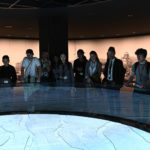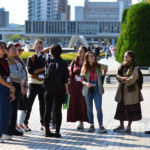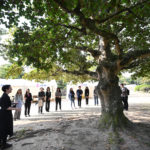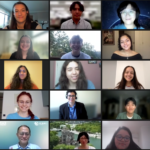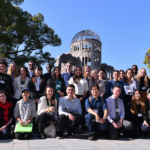Hiroshima-ICAN Academy on Nuclear Weapons and Global Security 2023 Hiroshima Session Day3
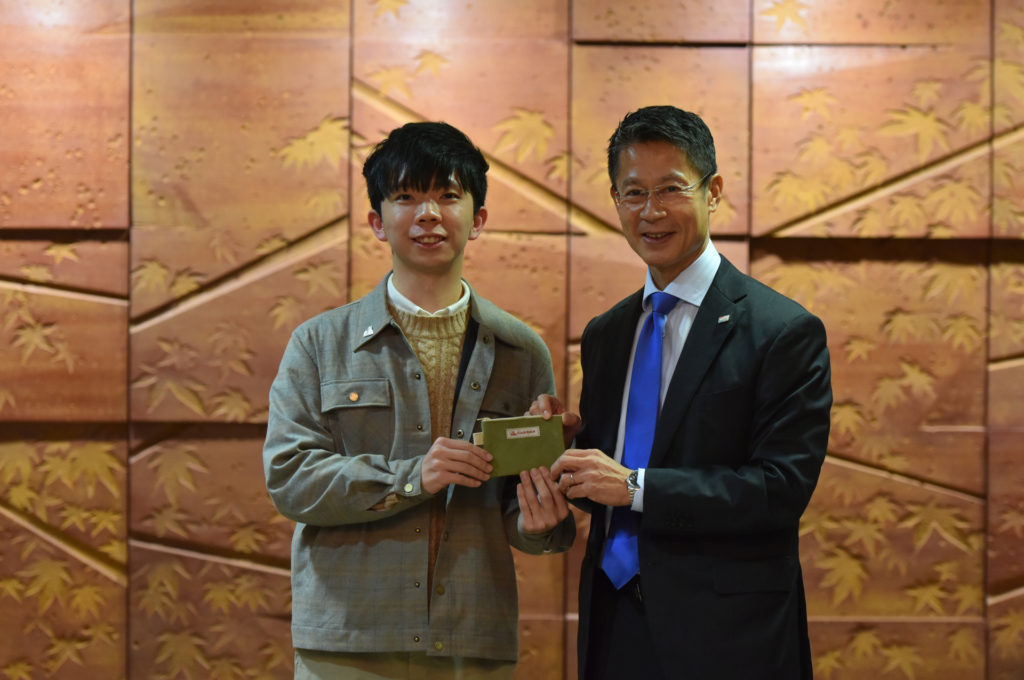
○ Day 3 program
· Lecture「Global Hibakusha (survivors of radiation exposure)」
Robert Jacobs Professor of Hiroshima City University, Hiroshima Peace Institute
· Lecture「International Humanitarian Law and Nuclear Weapons」
Shoko Hanzawa Head of the International Committee of the Red Cross Japan Delegation
· Lecture「The Relationship between Arguments for Nuclear Risk Reduction and Nuclear Deterrence」
Michiru Nishida Professor at the School of Global Humanities and Social Sciences, Nagasaki University
· Lecture「Hiroshima Prefecture Peace Initiatives」
Hidehiko Yuzaki Governor of Hiroshima Prefecture / President of the Hiroshima Organization for Global Peace
The third day of the Hiroshima-ICAN Academy began with a lecture by Professor Robert Jacobs of Hiroshima City University on the theme of “Global Hibakusha (survivors of radiation exposure),” which covered the effects of the use of nuclear weapons on the human body and nature, the manufacturing process of nuclear weapons, and global hibakusha affected by radiation from nuclear tests.
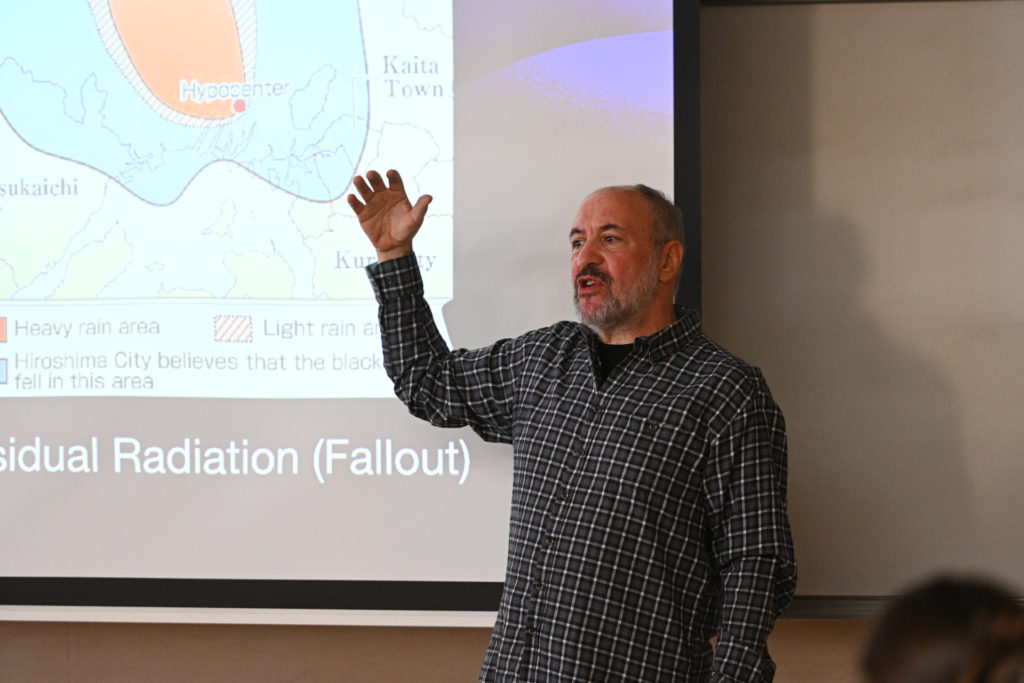
Professor of Hiroshima City University, Hiroshima Peace Institute
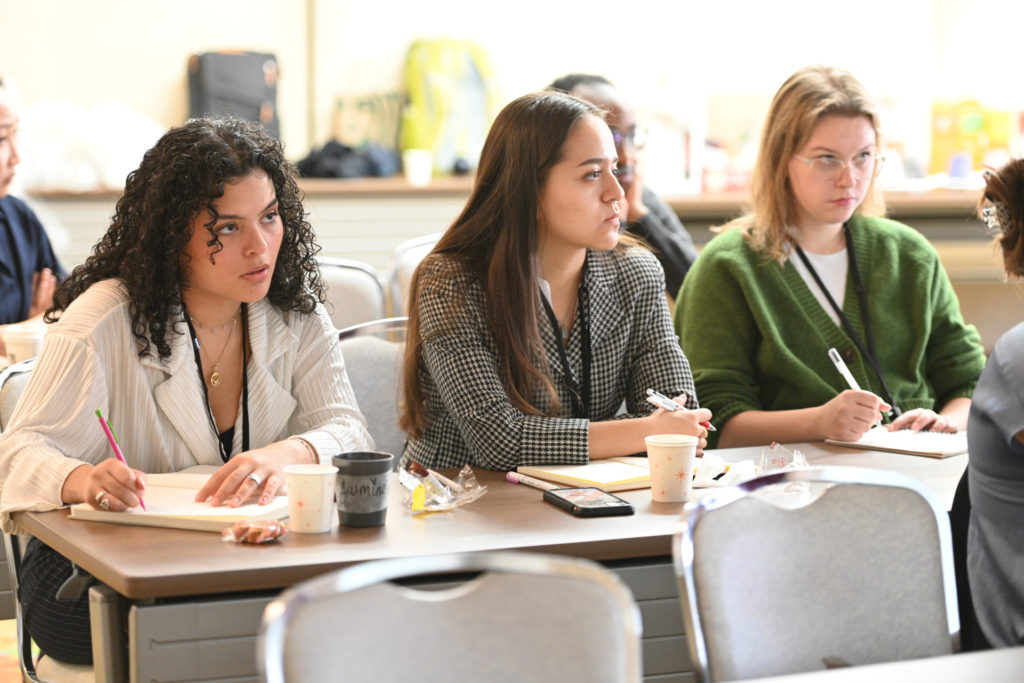
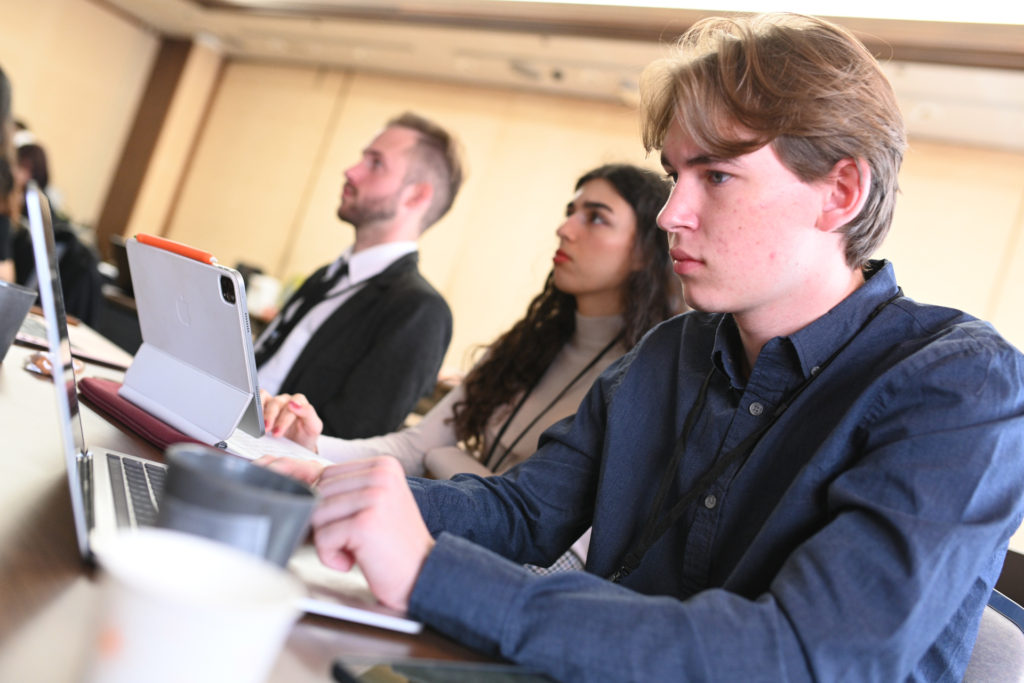
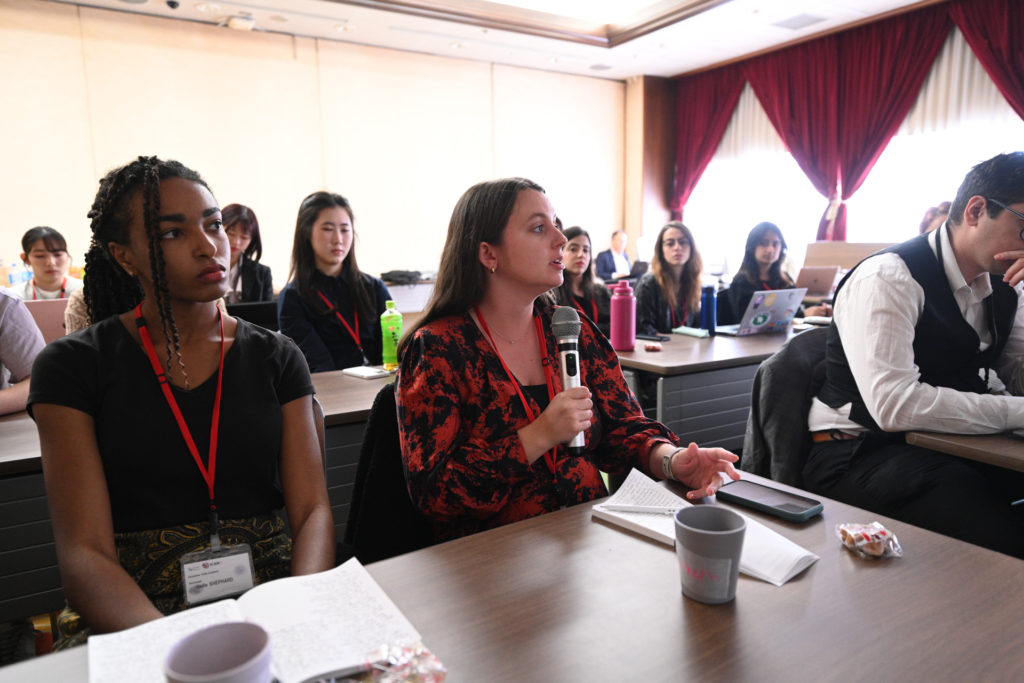
Participants asked about medical assistance for global hibakusha, such as, “Is there any assistance for global hibakusha, such as medical expense assistance, just as hibakusha in Hiroshima can receive medical care and other assistance?”
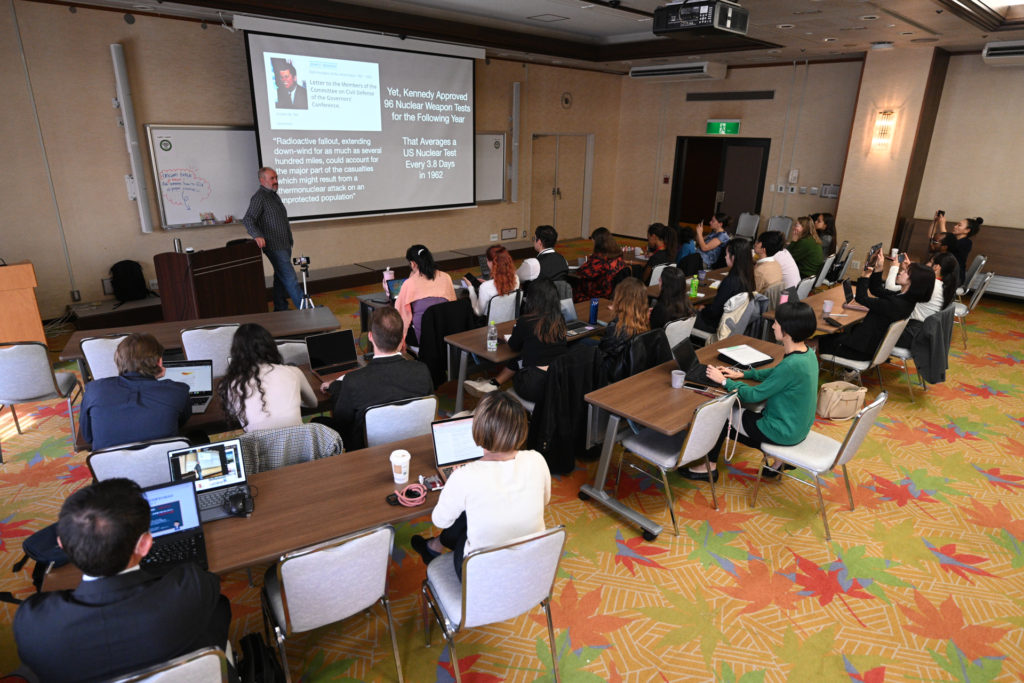
Next, Ms. Shoko Hanzawa, the Head of Delegation in Japan of the International Committee of the Red Cross (ICRC), gave a lecture on “International Humanitarian Law and Nuclear Weapons” on the activities and role of the ICRC.
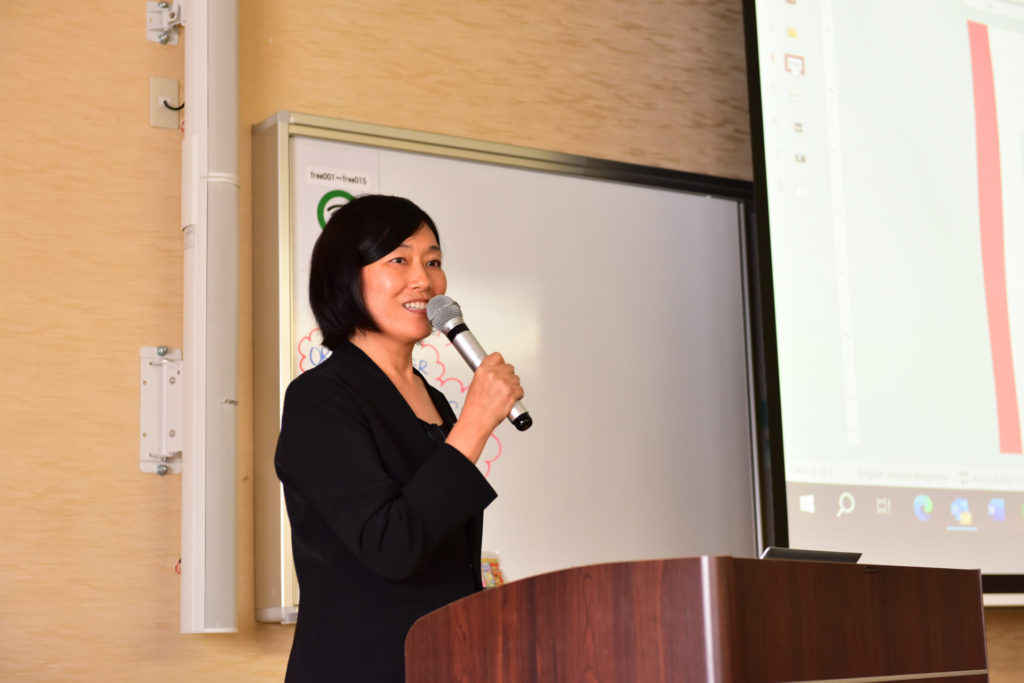
Head of the International Committee of the Red Cross Japan Delegation
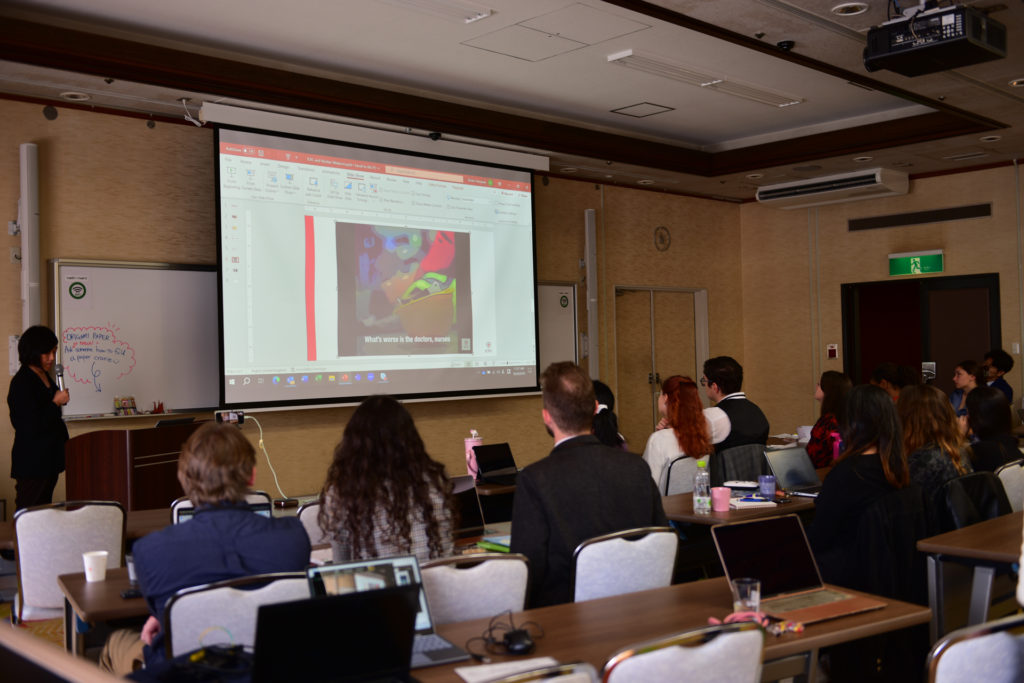
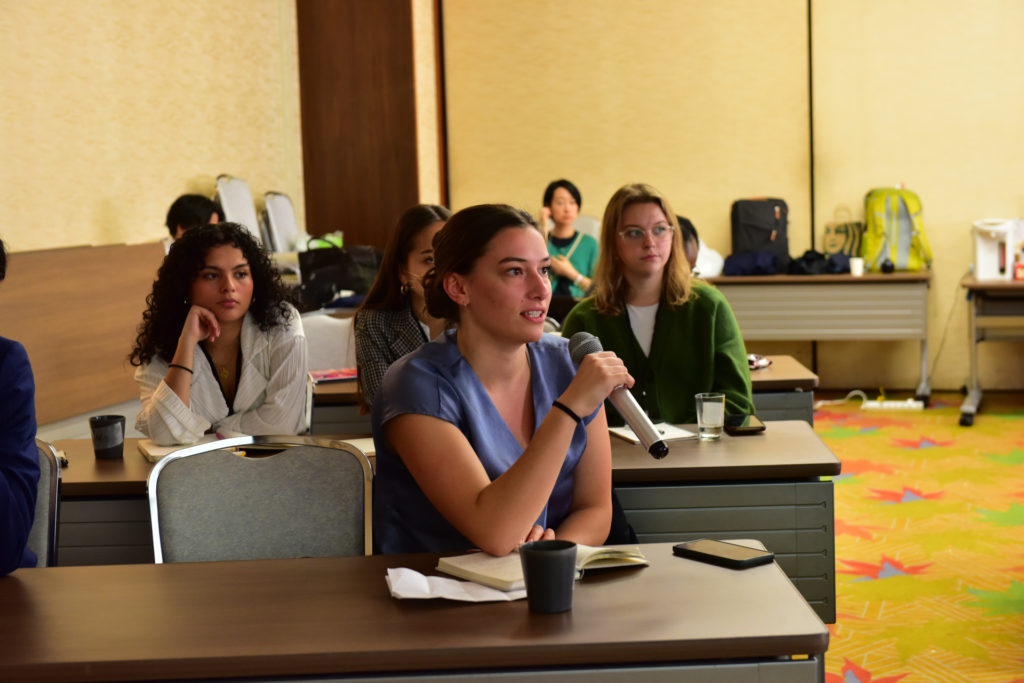
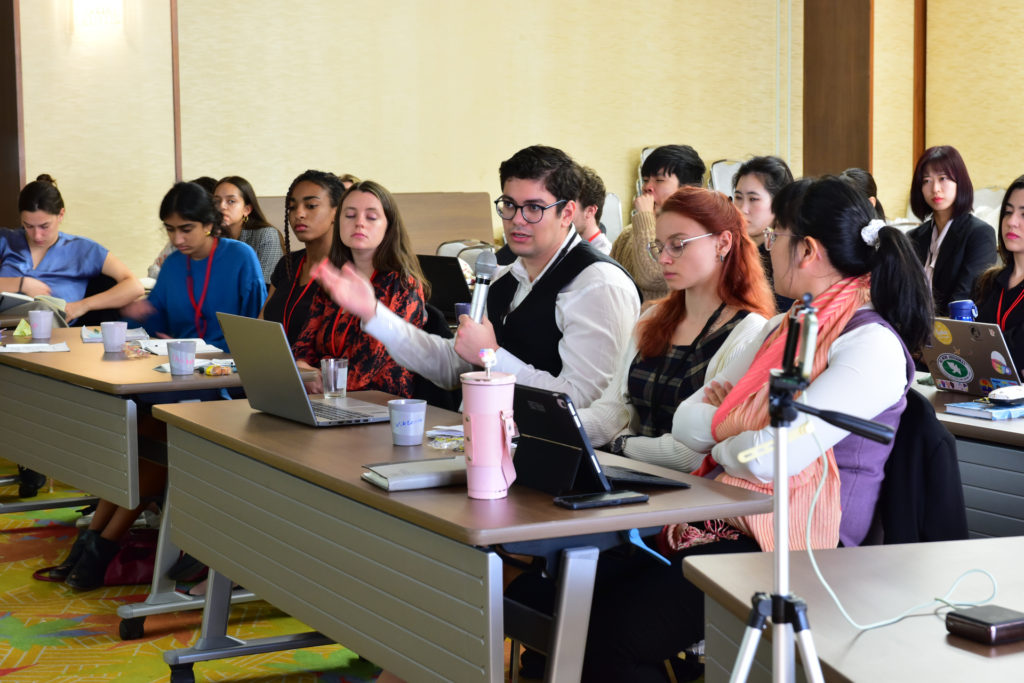
During the lecture, participants watched videos related to topics such as the effects of the use of nuclear weapons, and commented that nuclear weapons should never be used because they could cause a nuclear winter and significantly affect climate change, and that the countries that use them will eventually be contaminated by radiation, causing a great deal of damage. Through the lecture, the participants seemed to recognize anew the necessity of nuclear abolition.
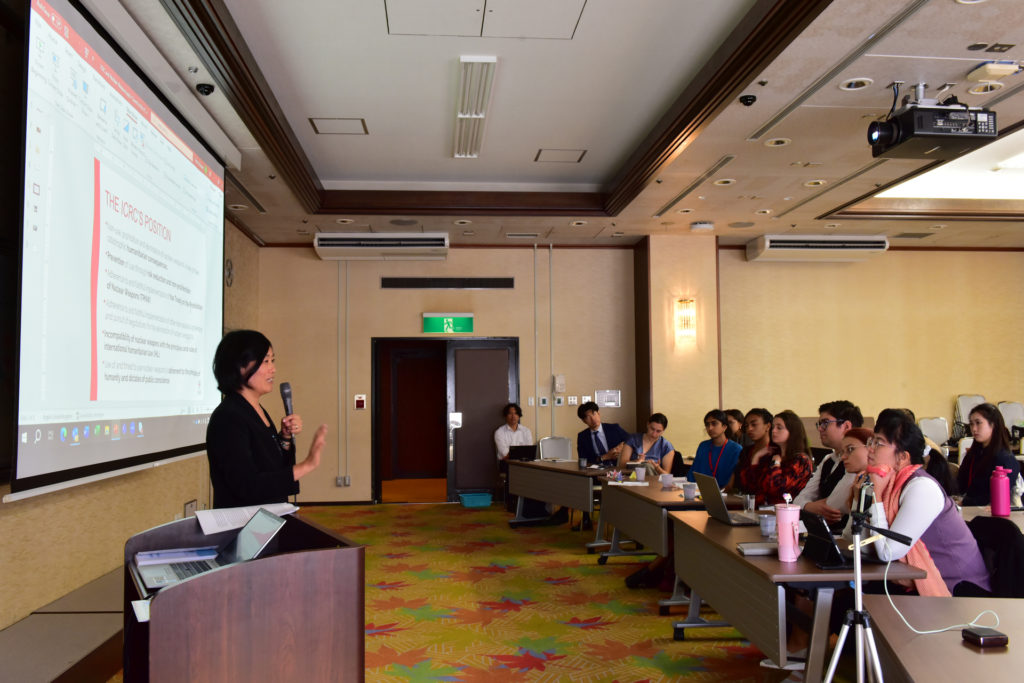
In the afternoon, Professor Michiru Nishida of the School of Global Humanities and Social Sciences, Nagasaki University, gave a lecture on “The Relationship between Arguments for Nuclear Risk Reduction and Nuclear Deterrence.”
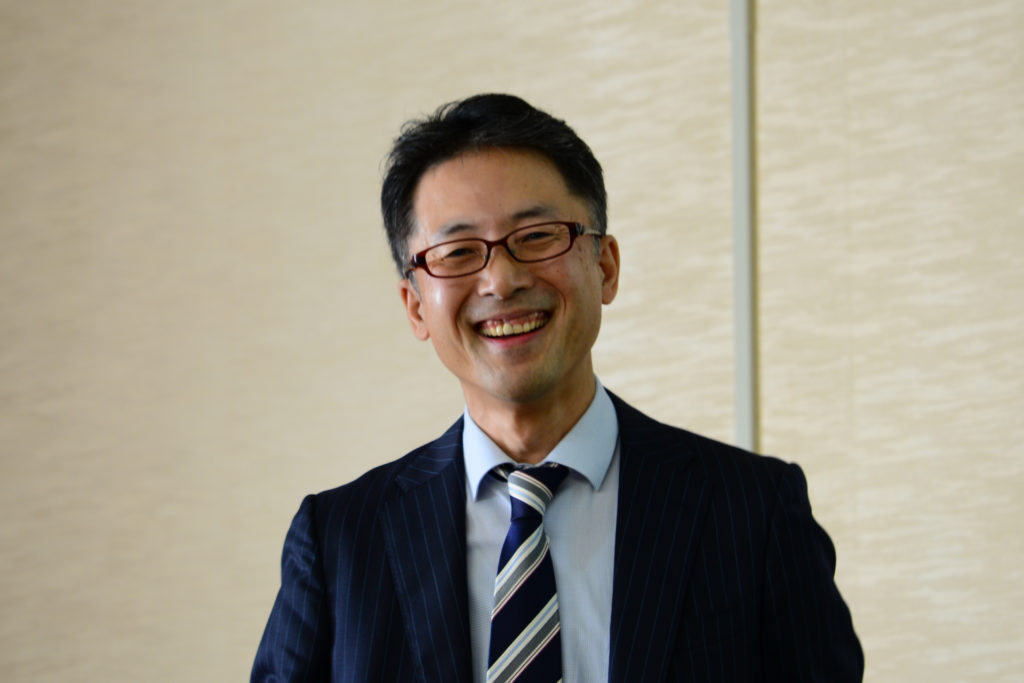
Professor at the School of Global Humanities and Social Sciences, Nagasaki University
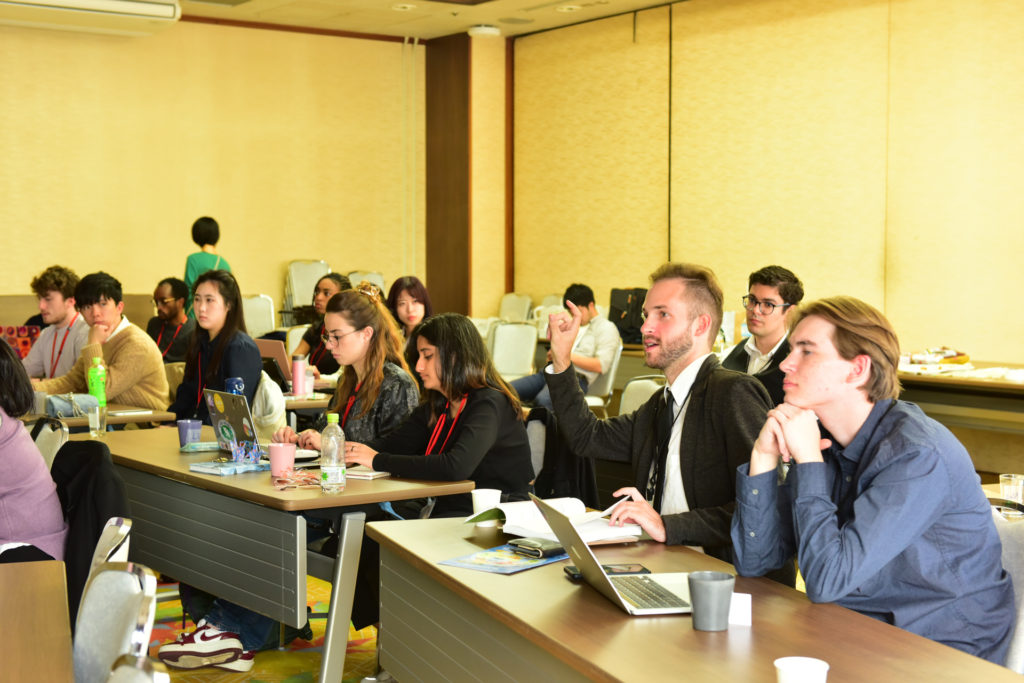
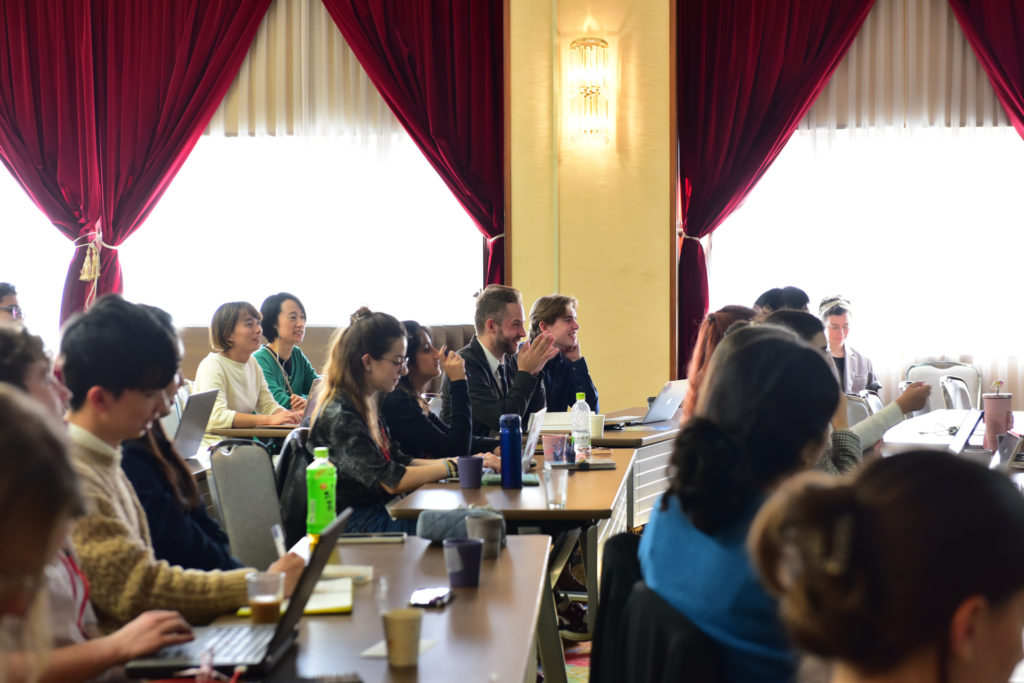
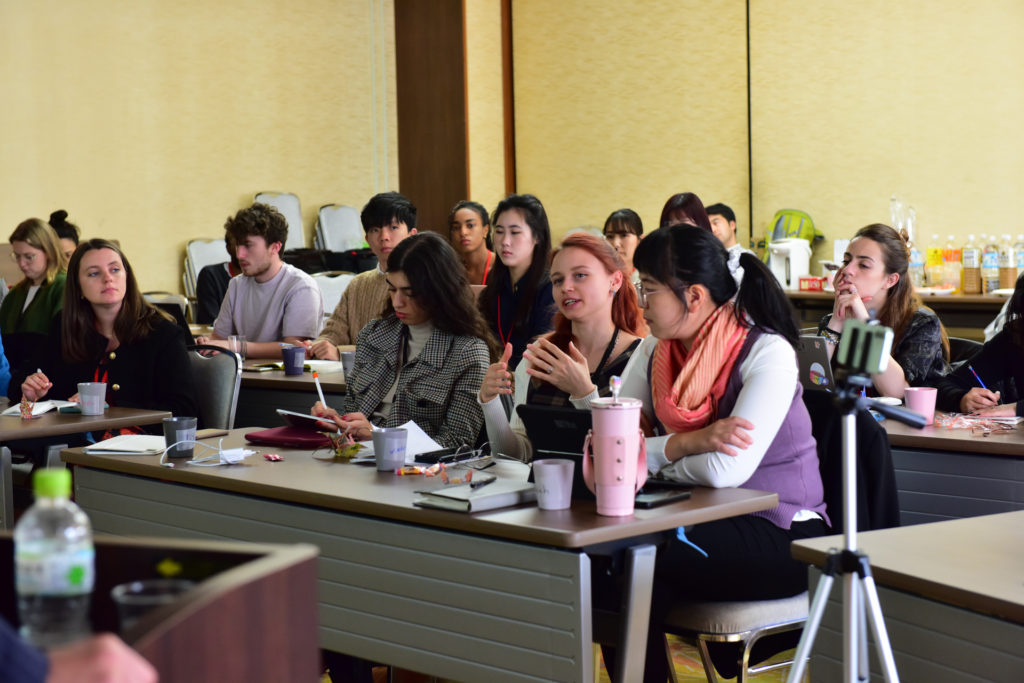
He explained the mechanism of nuclear deterrence and its impact on nuclear risk in an easy-to-understand manner, applying it to situations that could occur in our daily lives. Accordingly, participants seemed to deepen their understanding of nuclear deterrence and nuclear risk.
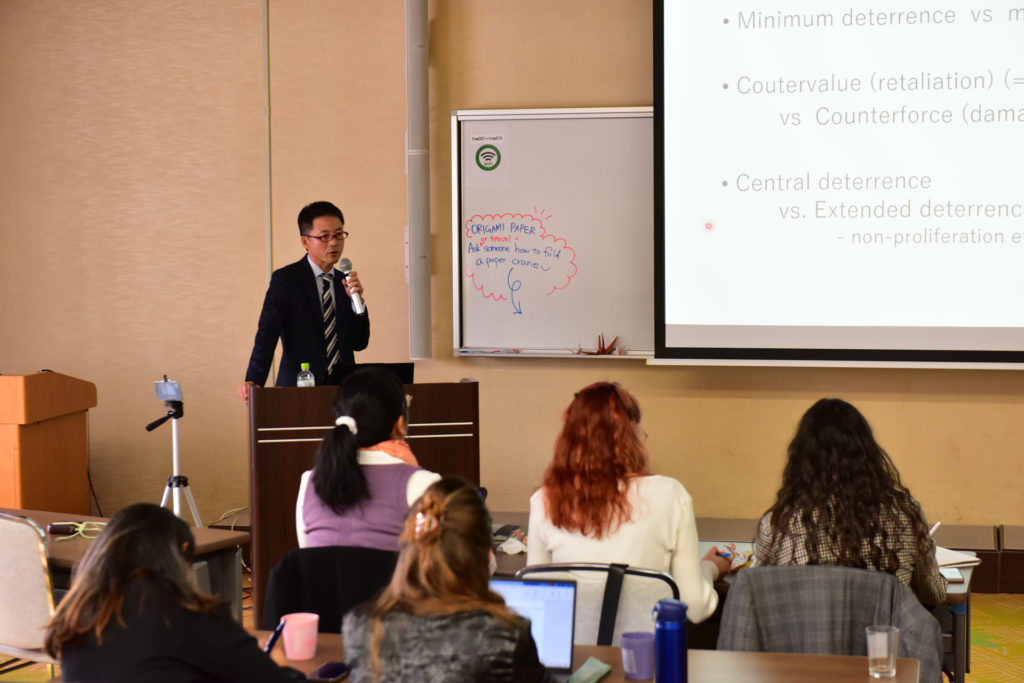
The participants then moved to the Hiroshima Prefectural Government Office, where Hiroshima Governor Hidehiko Yuzaki gave a lecture on peace initiatives implemented by Hiroshima Prefecture and the Hiroshima Organization for Global Peace (HOPe), as well as the outcomes and challenges of the G7 Hiroshima Summit held in May.
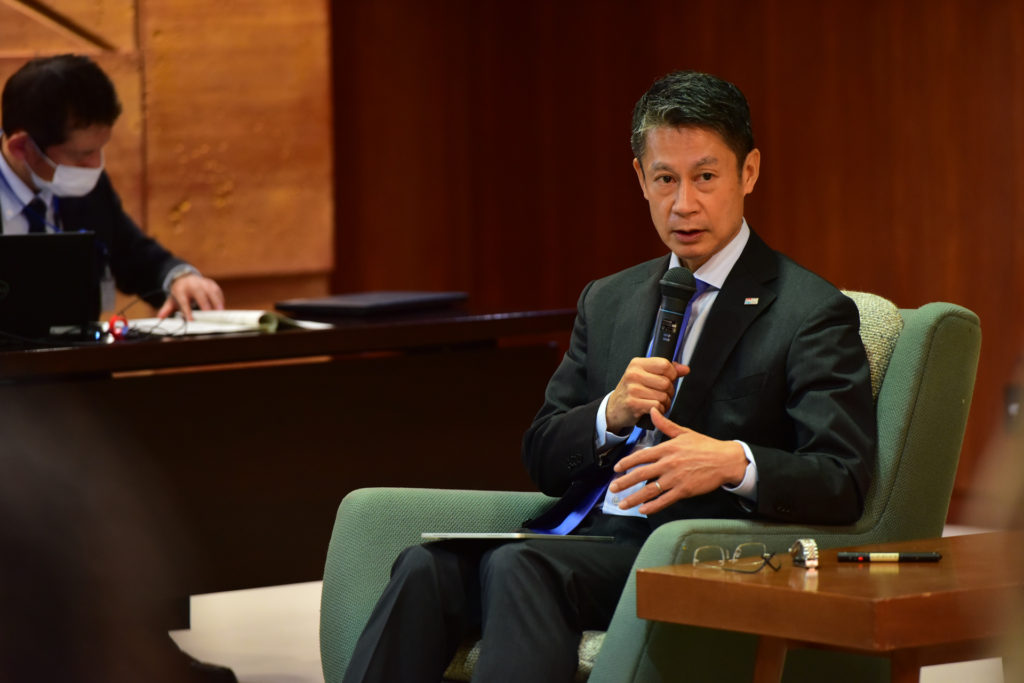
Participants asked questions about what Hiroshima Prefecture, an A-bombed city, is aware of in promoting its peace policy and the issues it faces in actually implementing the policy. The participants seemed to have an endless interest in what the mayor of one of the world’s only two A-bombed cities thinks about nuclear weapons and what kind of peace policy he would like to promote from his city.
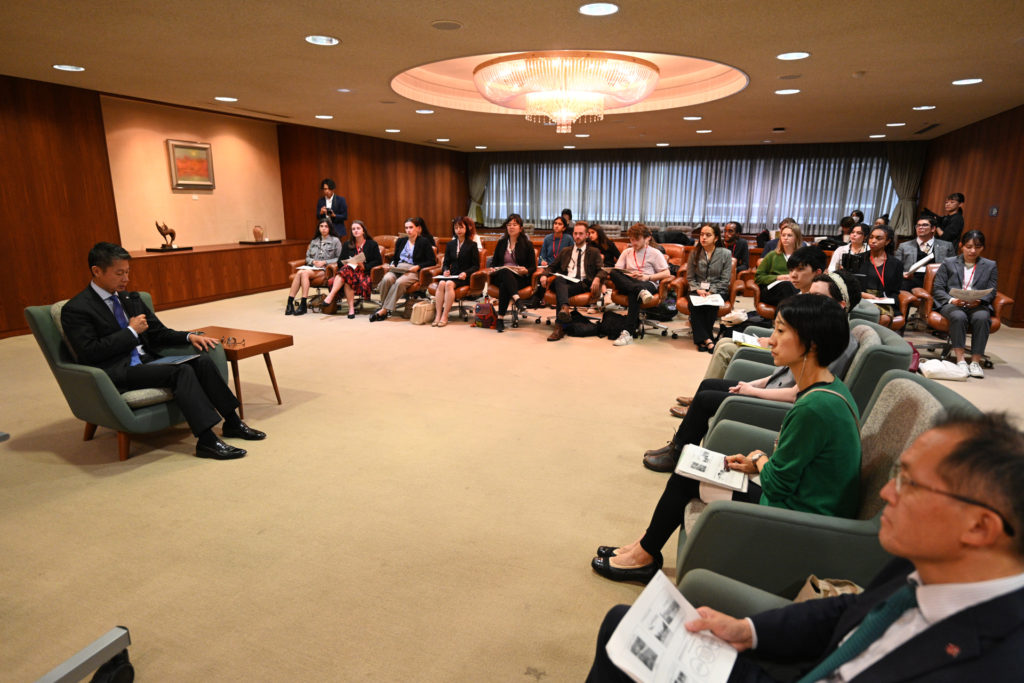
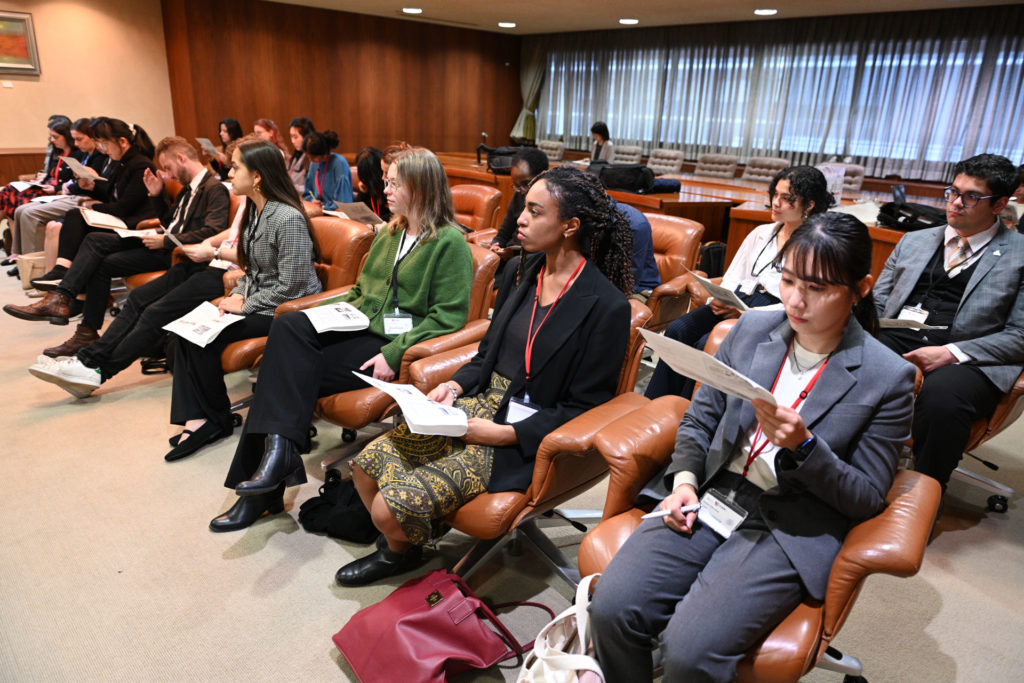
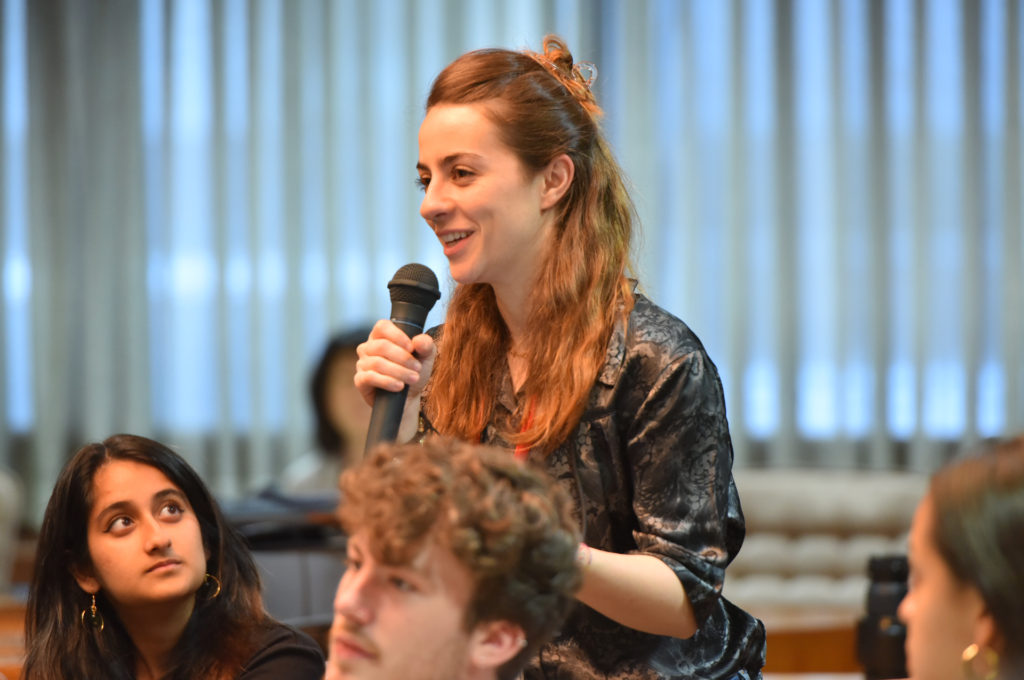
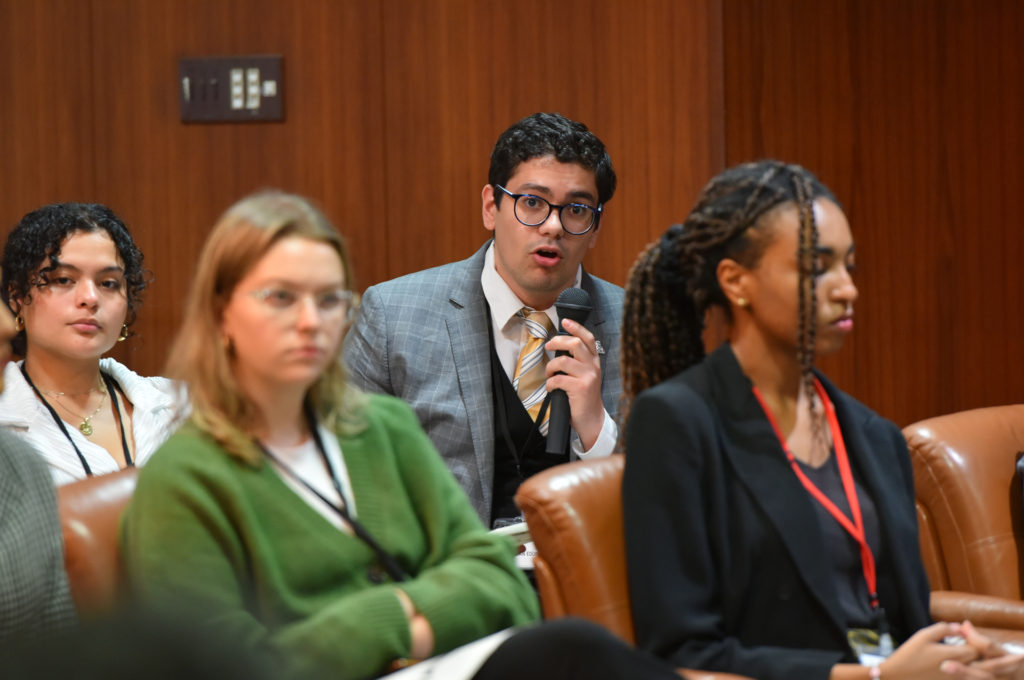
During this day’s program, participants seemed to be greatly stimulated by seeing first-hand the source of the various studies on nuclear weapons and administrative efforts in an A-bombed city.
For dinner this evening, participants dined freely in Hiroshima City. The participants went out on the town to eat okonomiyaki (a popular pan-fried dish consisting of batter, cabbage, and other ingredients), which they had heard about from time to time, to refresh their energy.
There is only one day left in the program. Each participant will approach the final day of the program with what they learned and felt in Hiroshima in their hearts and minds.
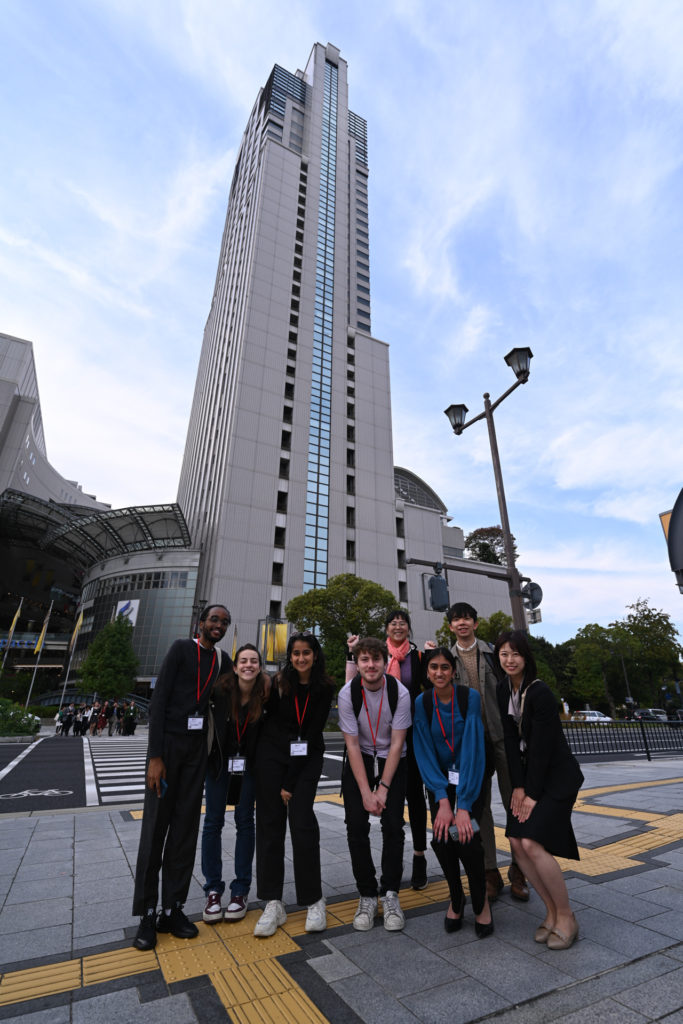
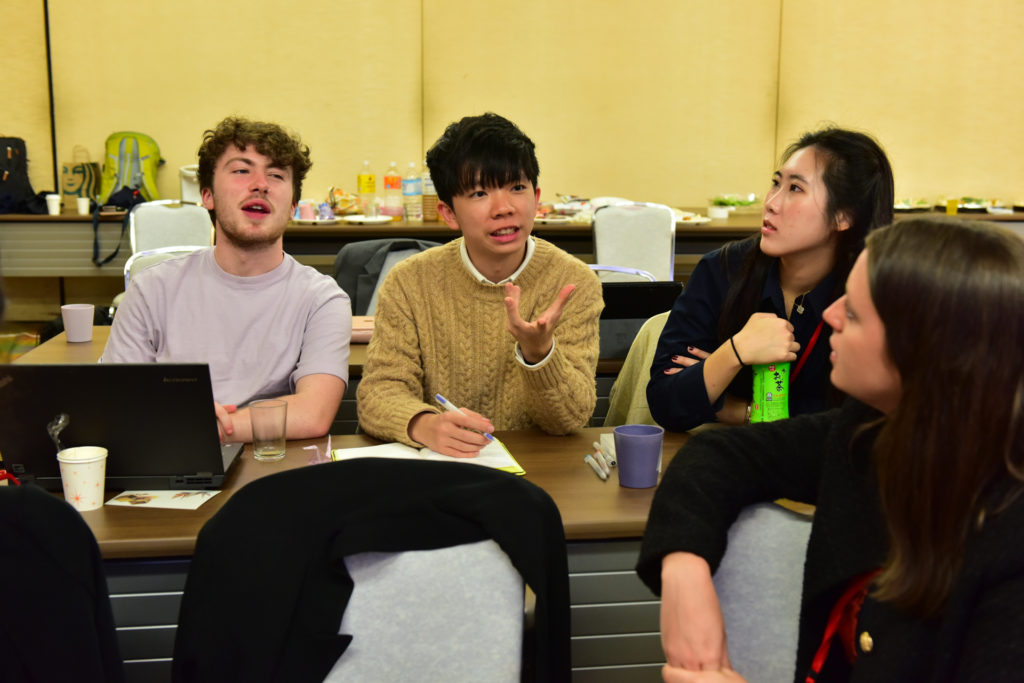
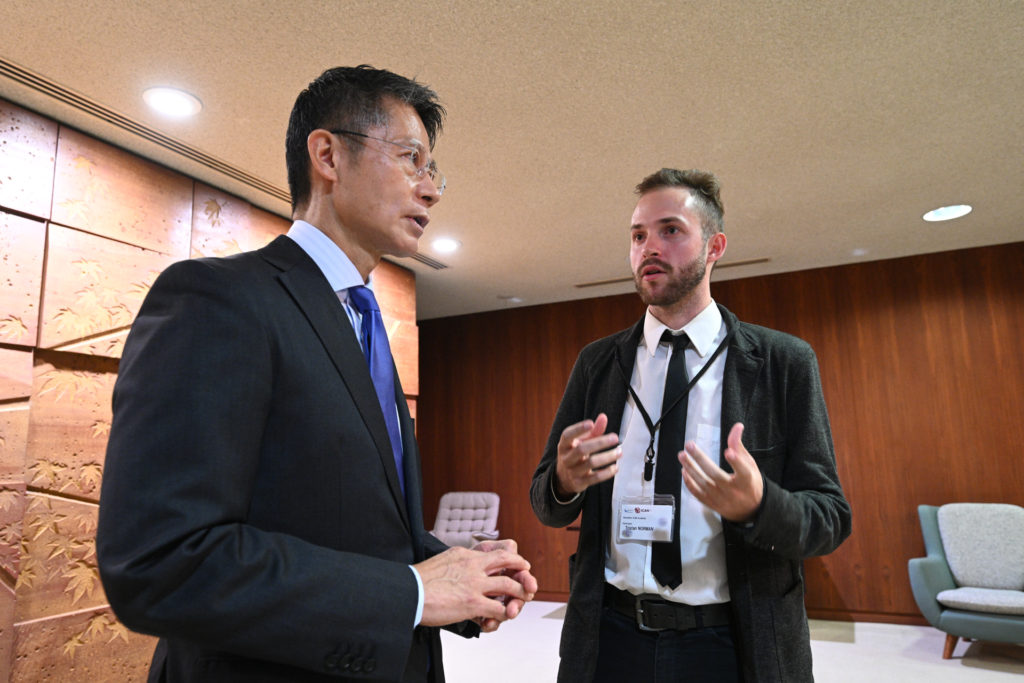
Other days
Webiner Session
Hiroshima Session
Tags associated with this article



